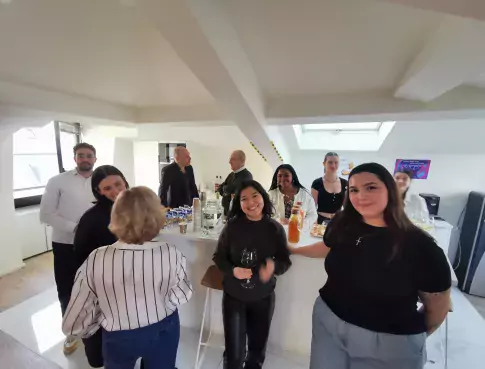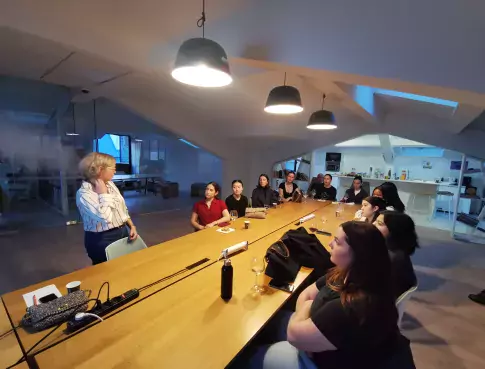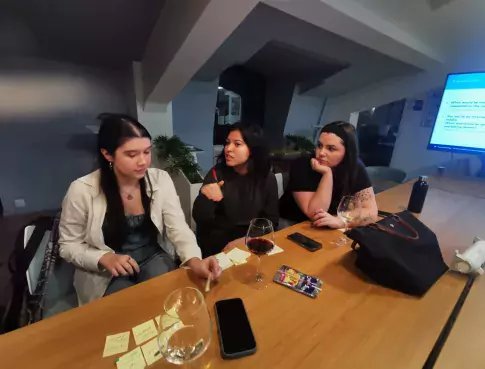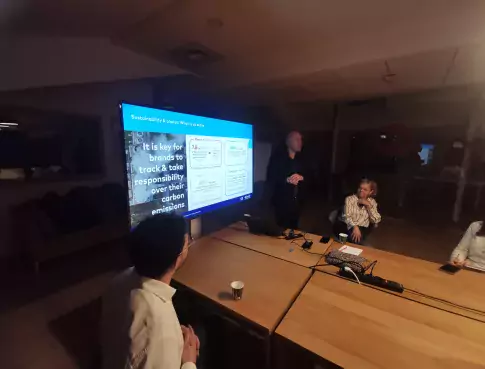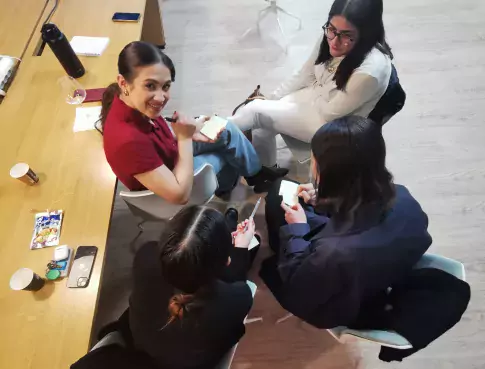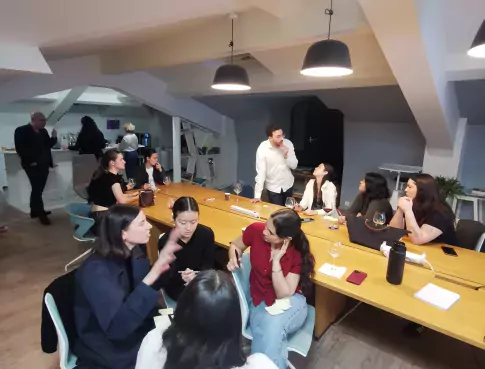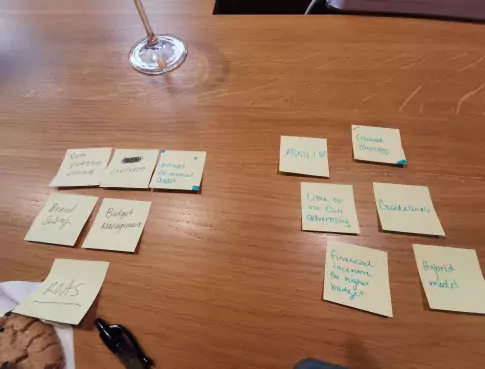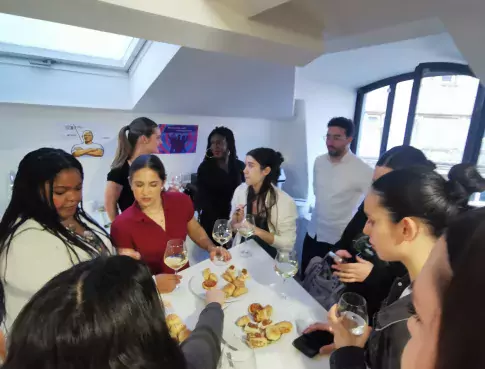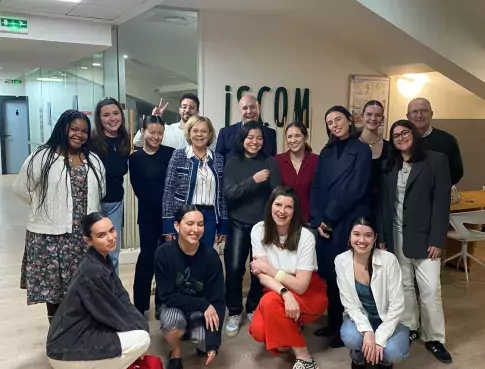The FIT/ISCOM Masterclass Shaping Tomorrow's Communication Professionals
The FIT/ISCOM Masterclass themed "Responsible Media" took place on the 21st of March 2024, at ISCOM Paris, marking the continuing collaboration between the Fashion Institute of Technology (FIT) and the Institut Supérieur de Communication (ISCOM). These events celebrate the union of two prestigious educational institutions which plunge the next generation of young professionals into the realities of the communication and media industries.
The Masterclass drew enthusiastic participation from the students, who listened intently to industry experts from Ebiquity, a leading international consultancy specializing in media optimization and marketing. The Masterclass, led by Emmanuel Barbet and Nathalie Taboch, with the participation of Hachem Belghazi, delved deep into the intricacies of responsible media practices.
The core philosophy driving the FIT/ISCOM collaboration is a steadfast commitment to bridging the gap between academic theory and real-world application. The FIT/ISCOM joint program stands as a testament to the importance of professionalisation in higher education. Curated by a Franco-American scientific committee comprised of leading industry players, the curriculum offers a holistic and nuanced understanding of the evolving demands of the communication industry. Through a blend of cross-cultural experiences, hands-on projects, and immersive learning opportunities, students are equipped with the skills, competencies, and global perspectives necessary to thrive in today's complex communication landscape.
By fostering partnerships with renowned institutions like FIT, students gain access to a wealth of global insights, diverse perspectives, and emerging trends, enriching their educational journey and broadening their horizons. Over the course of two transformative years split between New York and Paris, students undergo a profound journey of experiential learning, where cultural immersion seamlessly intertwines with professional growth. The FIT/ISCOM Masterclass serves as a poignant testament to the evolving role of education in shaping the leaders of tomorrow.
Interview Emmanuel Barbet
Are respecting responsible media principles becoming more and more important to brands?
Yes totally. It is not only a question of controlling properly an increasingly complex supply chain for brand suitability (ultimately knowing where money invested goes), but also answering to societal, legal and financial responsibilities. Brands want to make sure that they are avoiding click bait, hate speech, fraud and "Made for Advertising". They also need to control their carbon footprint throughout their whole ecosystem.
What are the main issues or misunderstandings around this topic in your opinion?
There are different ones. First, the complexity of the digital media supply chain: it needs tools, resources and knowledge to grasp all the different areas to look at, and that’s where we are here to help. Second, the risk in terms of performance: some would say that carbon reduction ambitions would decrease visibility, that controlling the broadcasting environments too much would limit scalability and performance, which is a misconception. Our studies have showcased that being present in suitable environments has a positive impact on brands.
What expertise does Ebiquity bring to its clients on this issue?
We have a series of services that support advertisers when it comes to Responsible Media. The first one is called Digital Governance: we analyse the digital investments through best practice principles in terms of trading, transparency and broadcasting rules to identify and quantify the areas where there is value waste, and propose recommendations for improvement. The second is focused on sustainability: we measure digital media carbon emissions at granular level to identify the emissions that are generated by malpractice, and supply insights and recommendations that will not only improve performance but also decrease carbon emissions. Both these services can be done through an always-on program, that will make the agency more accountable, by tracking the reality of the recommendations.
How important is it that young communication professionals understand the details of responsible media practices?
Our new breed of professionals will be directly impacted by these challenges, from day one. They’ll need to be able to manage return on investment with clarity, grasping the complete ecosystem they’ll be working on, avoiding only following the promises of the dominant actors they’ll have around them. Also, the challenges linked to carbon emissions will impact the decisions they’ll need to take, to answer to compliance necessities while bringing success to their media and communication campaigns.
Did you enjoy sharing your expertise with our students?
We loved it ! It is always a pleasure to transmit, but also to exchange on their concerns and questions.
How important is it for students to meet, interact and work with real-life professionals?
Courses provide a strong baseline, but then reality can be different, from one sector to another, or even one job to another. It enriches their train of thought in terms of knowledge, but also in terms of career.
What skills do you think are essential or young communication professionals to have in the job market nowadays?
Curiosity is key! It is an ever-changing ecosystem, and they need to continuously understand the changes, and how their jobs (actual or future) will be impacted. That can be in terms of point of view, methodology, but also evolution.
An interest in data is important. Data is the core component for lots of different roles, and not only for analytics ones. A consultant or media/communication manager will have to make the data “speak”, to take decisions. Being able to understand how to brief AIs through proper prompts, but also control the outcomes will be more and more strategic
